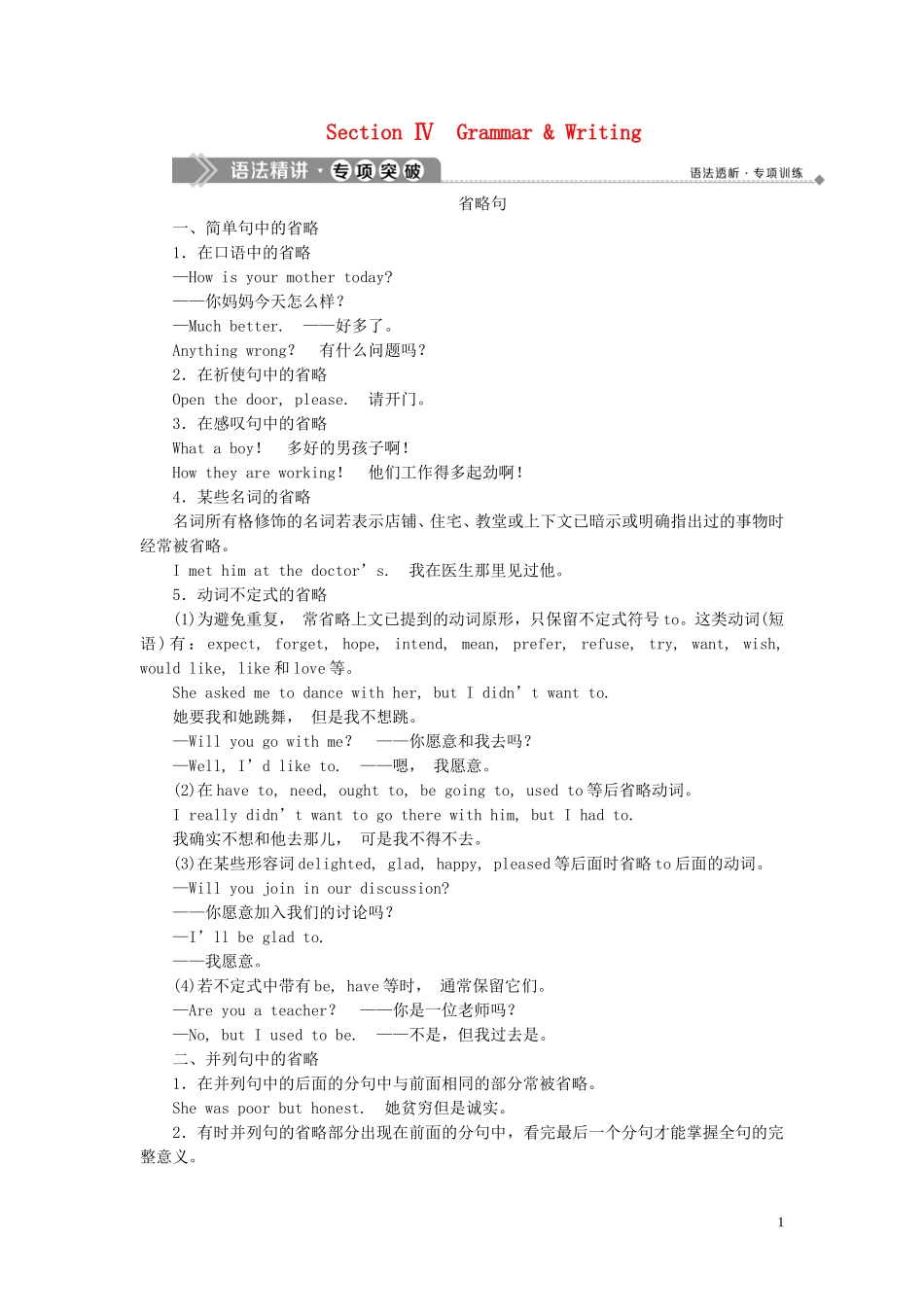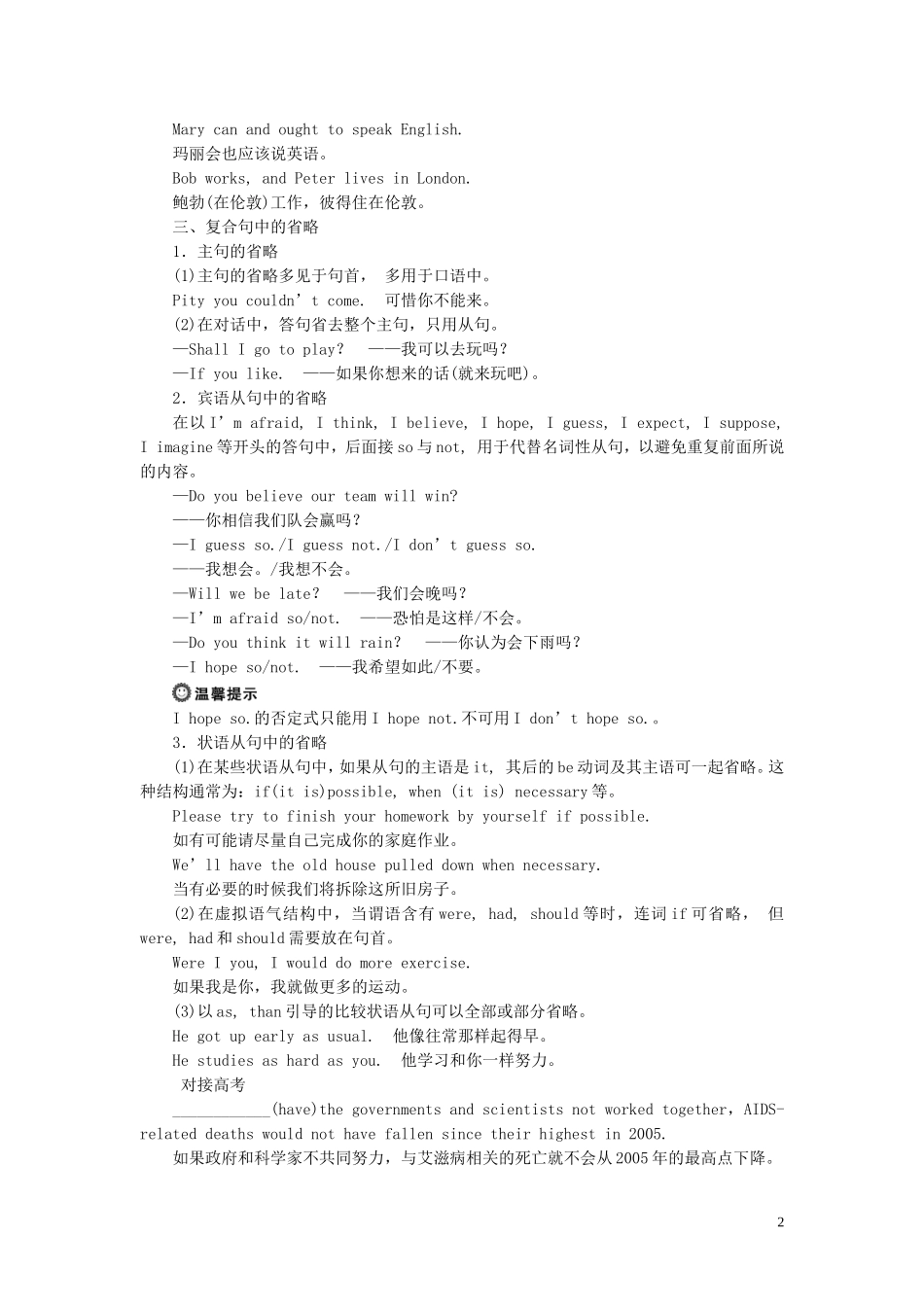Section Ⅳ Grammar & Writing 省略句一、简单句中的省略1.在口语中的省略—How is your mother today?——你妈妈今天怎么样?—Much better. ——好多了。Anything wrong? 有什么问题吗?2.在祈使句中的省略Open the door, please. 请开门。3.在感叹句中的省略What a boy! 多好的男孩子啊!How they are working! 他们工作得多起劲啊!4.某些名词的省略名词所有格修饰的名词若表示店铺、住宅、教堂或上下文已暗示或明确指出过的事物时经常被省略。I met him at the doctor’s. 我在医生那里见过他。5.动词不定式的省略(1)为避免重复, 常省略上文已提到的动词原形,只保留不定式符号 to。这类动词(短语 ) 有 : expect, forget, hope, intend, mean, prefer, refuse, try, want, wish, would like, like 和 love 等。She asked me to dance with her, but I didn’t want to.她要我和她跳舞, 但是我不想跳。—Will you go with me? ——你愿意和我去吗?—Well, I’d like to. ——嗯, 我愿意。(2)在 have to, need, ought to, be going to, used to 等后省略动词。I really didn’t want to go there with him, but I had to.我确实不想和他去那儿, 可是我不得不去。(3)在某些形容词 delighted, glad, happy, pleased 等后面时省略 to 后面的动词。—Will you join in our discussion?——你愿意加入我们的讨论吗?—I’ll be glad to.——我愿意。(4)若不定式中带有 be, have 等时, 通常保留它们。—Are you a teacher? ——你是一位老师吗?—No, but I used to be. ——不是,但我过去是。二、并列句中的省略1.在并列句中的后面的分句中与前面相同的部分常被省略。She was poor but honest. 她贫穷但是诚实。2.有时并列句的省略部分出现在前面的分句中,看完最后一个分句才能掌握全句的完整意义。1Mary can and ought to speak English.玛丽会也应该说英语。Bob works, and Peter lives in London.鲍勃(在伦敦)工作,彼得住在伦敦。三、复合句中的省略1.主句的省略(1)主句的省略多见于句首, 多用于口语中。Pity you couldn’t come. 可惜你不能来。(2)在对话中,答句省去整个主句,只用从句。—Shall I go to play? ——我可以去玩吗?—If you like. —...


